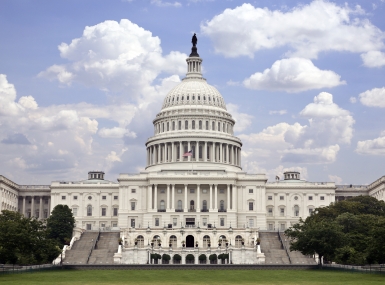Potential threats to Medicaid loom over health care debate
Upcoming Events
Related News
As Congress and the Trump administration work to coalesce around a “replacement plan” for the Affordable Care Act (ACA), the Medicaid program looks to be a likely target for policy changes that could impact counties.
Significant changes to Medicaid have been suggested under previous Republican proposals, including the blueprint released by House Speaker Paul Ryan as a part of his “Better Way” vision and a draft FY17 budget resolution proposed by the nominee for the secretary of the Department of Health and Human Services (HHS), Rep. Tom Price (R.-Ga.).
Most recently, President Trump’s advisor Kellyanne Conway mentioned the block-granting of Medicaid as one of the policy changes that the Trump administration is considering, and the topic was again raised during the GOP’s recent congressional retreat in Philadelphia.
Medicaid is a federal entitlement program administered by states, often with assistance from counties, that provides health and long-term care insurance to over 70 million low-income families and individuals, or one in five Americans.
Authorized under the Social Security Act, Medicaid is jointly financed by federal, state and local governments, including counties, which contributed most of the $28 billion in local government contributions to the non-federal share of Medicaid in 2012, the latest year for which data was available.
Medicaid helps counties meet their often-mandated requirements to provide health care to the low-income, underinsured and uninsured. Medicaid decreases uncompensated care costs, lessening the strain on county budgets while providing much needed patient revenues that helps communities retain doctors and health professionals, especially in rural and underserved areas.
Federal Medicaid spending is expected to continue to rise over the coming decades due to the aging of the population and the expansion of the program in 32 states and the District of Columbia. Cuts to Medicaid, a program seen as less politically popular than Medicare, have been proposed to stem rising costs.
All of the proposals would shrink federal funding for state Medicaid programs over time. Under a block grant, states would receive a fixed amount of federal funding each year, regardless of changes in program enrollment and mandates. Under a per capita cap, which was also proposed as an option in Ryan’s plan, states would receive a fixed amount of federal funding per beneficiary category. Capping funds would further shift costs to counties, and as uncompensated care costs increased, counties’ capacity to provide health services to their residents would decrease.
While administration officials have indicated that a Medicaid block grant is likely to be included in any major health reforms, Trump has indicated that he is waiting for Price to be confirmed before sharing details about his plan.
In recent confirmation hearings, Price has declined to answer direct questions about whether he supports block-granting Medicaid, instead he stated his interest in changing a “system that isn’t working.” Meanwhile, the nation’s governors, represented by the National Governors Association, have said that it is “critical” that Congress doesn’t shift more costs onto states as lawmakers pursue changes.
NACo, in a letter to House leadership, has also urged Congress to consider the implications of health reforms that would merely shift costs to counties.
In order to help policymakers better understand why it is essential to preserve the federal-state-local partnership for Medicaid, NACo recently updated the legislative presentation, Medicaid and Counties: Understanding the program and why it matters to counties. It can be found on NACo’s website at www.naco.org/medicaid.
Attachments
Related News

U.S. Congress passes reconciliation bill: What it means for counties
On July 3, the U.S. Congress passed sweeping budget reconciliation legislation.

Fluoride in drinking water: History, safety and benefits for community health
The EPA sets and regulates a maximum level of fluoridation in public water systems, but the federal government cannot require states or localities to fluoridate their water, nor can it remove fluoridation in jurisdictions where it is already policy.

U.S. Senate passes amended reconciliation bill text: What it means for counties
On July 1, the U.S. Senate narrowly passed their version of sweeping budget reconciliation legislation.